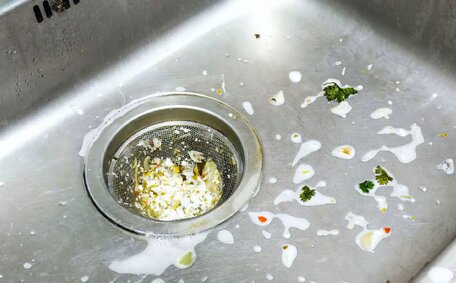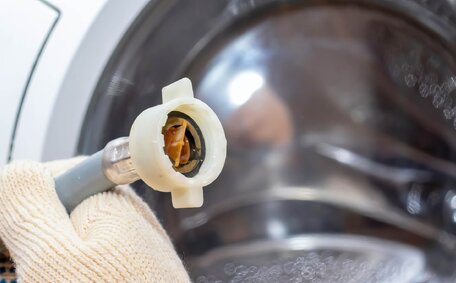Understanding Common Hot Water Issues
A reliable gas water heater is essential in Australian households for activities such as washing, cleaning, and bathing. However, hot water systems can develop problems that prevent them from heating properly, leaving your appliances without the hot water they need.
There are several common signs your hot water system may not be working correctly:
- A malfunctioning hot water heater tank may be indicated by water that fails to reach the desired temperature or remains lukewarm even on the highest setting.
- Intermittent fluctuations between hot and cold water is a symptom of temperature and pressure issues
- It requires significantly longer times to yield. faucet to yield warm water or for your shower to become hot
- The system depletes hot water more quickly than usual, indicating there’s less availability than there should be
The lifespan of a typical water heater tank is 10 to 15 years, with mineral deposits, corrosion, and wear being common culprits that diminish efficiency and lead to breakdowns, especially in older units. Gas hot water system, electric water heater models and solar options all have unique components that can fail over time.
Understanding the possible reasons why each system type, including tankless water heater models, encounter issues can help troubleshoot what needs fixing when problems arise:
- Gas systems - pilot light problems, faulty gas valves, broken dip tubes, sediment buildup, leaks
- Electric systems - broken heating elements, thermostat and wiring problems, leaks, sediment buildup
- Solar systems - pump failures, control unit issues, cloudy weather, leaks, low water flow
Seeking professional plumbing help is often necessary to ensure your water heater provides consistent hot water safely and effectively. With the right diagnosis, issues with your hot water heater can often be resolved affordably, restoring optimal function in your home or business.
Checking Electrical Connections and Circuit Breakers
Electrical issues are a frequent cause of water heater malfunctions. Hot water units require proper electrical connections to effectively engage system components such as heating elements, thermostats, and pumps. If the electricity supply is compromised, there is a risk to run out hot water, preventing the flow from your water tap from being hot.
Issues to look for include:
- Tripped circuit breaker or blown fuses halting power to your hot water unit
- Faulty dip tube elements or wiring connections inside the water heater
- Power surges damaging internal electrical parts
As a safety precaution, always start by turning off the power to your hot water system at the mains when troubleshooting. Then, after exhausting all strategies and finding no hot water, check your home’s electrical circuit panel for any tripped switches or blown fuses relating to the water heater power circuit. Press the reset button on breakers and replace fuses where necessary.
Inspect all visible wiring to your hot water system for damage. Should you encounter any faulty wiring, call your trusted licenced electrician for repair.
Wiring should be intact with tight connections. Loose or corroded connectors can interrupt the power supply.
While addressing electrical issues first is advisable, also ensure that gas valves are open and there are no leaks, blockages, or hindrances to water flow in gas hot water systems.
Identifying and Handling Gas Valve Problems
Investigating interruptions in your hot water supply includes examining the natural gas valves, which are crucial components of gas water heaters. Valve complications can be a cause for loss hot water production, leaving you with an uninviting cold shower.
Signs of a faulty gas valve include:
- Pilot light not staying lit
- Burner failing to ignite
- Flame height low or uneven
- Low hot water pressure and temperature inconsistencies
Before inspecting the gas valve, turn off the gas supply line to the hot water unit. An irregular pilot flame may suggest a clogged pilot tube or a malfunctioning gas control. Check that your gas pilot light sparks on when the control knob is turned.
If these steps do not restore hot water, the thermocouple may need to be replaced.
For safety, do not try to force valves open or repeatedly ignite the pilot light yourself. A gas leak or explosions could result. Our qualified professionals will ensure your system is securely repaired, restoring optimal hot water flow.
Trust Burwood Plumbing to swiftly identify and resolve any gas valve faults restoring consistent hot water to your home or business.
Fixing Faulty Heating Elements
If you’re experiencing a decline in heating, electric hot water heaters rely on internal heating elements to efficiently heat water. Learning how to fix failing elements over time can prevent tepid water instead of steamy hot water.
indicators of a malfunctioning heating element are:
- Lukewarm water
- a decrease in hot water flow
- Water struggling to heat up to desired temperatures
Replacing a broken heating element is often an easy DIY fix. First, disconnect the power supply to your hot water system for safety. Then open the drain valve to partially empty your hot water tank. Unscrew the retaining bolts to remove the element.
Remove the access cover and disconnect the electrical leads to the faulty element using an insulated screwdriver.
Match the new element’s voltage, wattage and dimensions to the original. Reinstall using pipe tape on the threads and replace the cover. Refill the tank before restoring power.
If you’ve unsuccessfully tried to fix your water heater or other issues present themselves, contact our experts at Burwood Plumbing. We can quickly diagnose heater working faults and get your hot water flowing reliably again.
Preventing Sediment Buildup
Over time, mineral deposits and sediment can accumulate inside water heater tanks. As the sediment buildup increases, it diminishes hot water pressure and the efficiency of heat transfer. Eventually, not addressing the issue can lead to complete system failure and water too not enough for your needs.
To help prevent sediment buildup in your tank:
- Annually, to keep your water heater’s storage tank free from mineral deposits, you’ll need to perform a flush to maintain performance. You’ll need to refer to your unit’s manual for specific flush instructions.
- Install a whole house water softener if you have exceptionally hard water. The softener ensures water can be filtered of minerals before they enter pipes and appliances.
- Replace your anode rod when it’s 50-60% worn down. Failing to replace eroded rods increases sediment accumulation.
Be proactive with maintenance to maximise the lifespan of your hot water heater.
When To Call A Professional For Leaks
Leaks in a hot water system, especially without a functioning pressure relief valve, can cause significant issues if not promptly addressed, affecting your household’s comfort and daily routines. Though initially minor leaks might appear innocuous, they can quickly escalate into large failures that flood homes and put safety at risk.
Signs of hot water coming out when you have a leaky water heater include:
- Visible water pooling at the bottom tank area
- New moisture damage like water spots on walls or ceilings
- There’s a distinct musty odour
- An increase in your water bill from excess usage
Leaks typically originate from corrosion eroding the metal over time, with the age of your tank, mineral content, and water pH all affecting the rate of corrosion. Older tanks and water with high mineral content or acidity accelerate this process.
Attempting a DIY patch repair on a leaking water heater is extremely dangerous due to the risk of electrocution from water contacting electrical components. The safest approach is to cut off the power and water supply to your unit before consulting a professional.
Contact us to thoroughly inspect your system for leaks, corrosion, and other damage. We can troubleshoot the root cause in gas hot water systems and advise if repairs are feasible or if full replacement is necessary for operational safety and integrity.
Rely on certified professionals to manage any leaks within your hot water system and prevent catastrophic failure or unsafe conditions.
Regular Maintenance For Long-Term Operation
Routine maintenance is essential for the longevity and consistent performance of hot water heaters. Like other household appliances, periodic inspections, flushings and component replacements can prevent many common problems.
It’s advisable to have your hot water system inspected annually by a licensed plumber. They will thoroughly inspect all components and flush mineral deposits from the tank. Early detection of leaks, corrosion, valve issues, or part failures allows for affordable repairs before these minor issues escalate into major failures.
Substituting worn-out anode rods prolongs lifespan of your gas hot water systems. Inspecting gas fittings ensures optimal and safe functionality. Self-maintenance may be adequate for straightforward tasks but might overlook fundamental issues.
For efficient water heating, consider professional assistance to flush out sediment buildup.
The qualified technicians at Burwood Plumbing specialise in the maintenance of all hot and cold water system types and brands, so . Give us a call on 1300 349 338 or jobs@burwoodplumbingservices.com.au to inquire about our affordable yearly service plans.
Modest annual investment in professional servicing can practically assure that when water is needed, your hot water system survives its full working life. You’ll enjoy consistent hot water supply and significant long-term savings compared to emergency breakdown repairs or early replacements.






